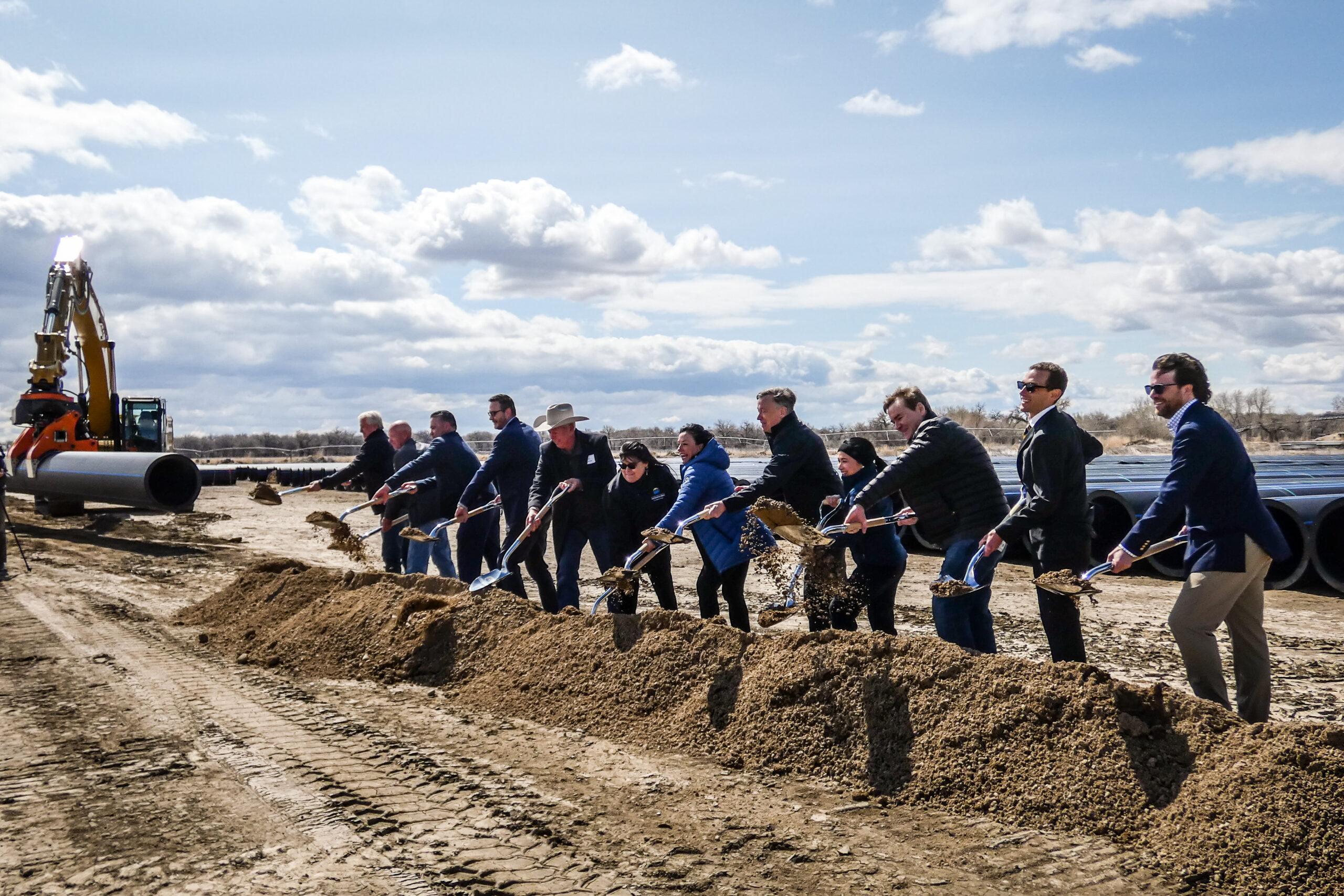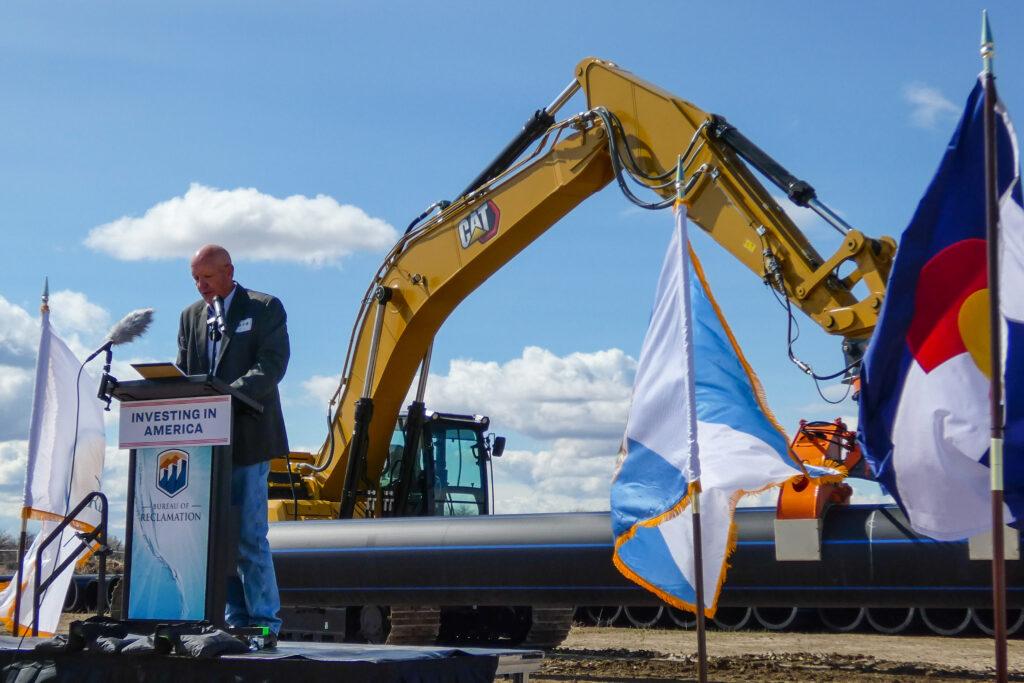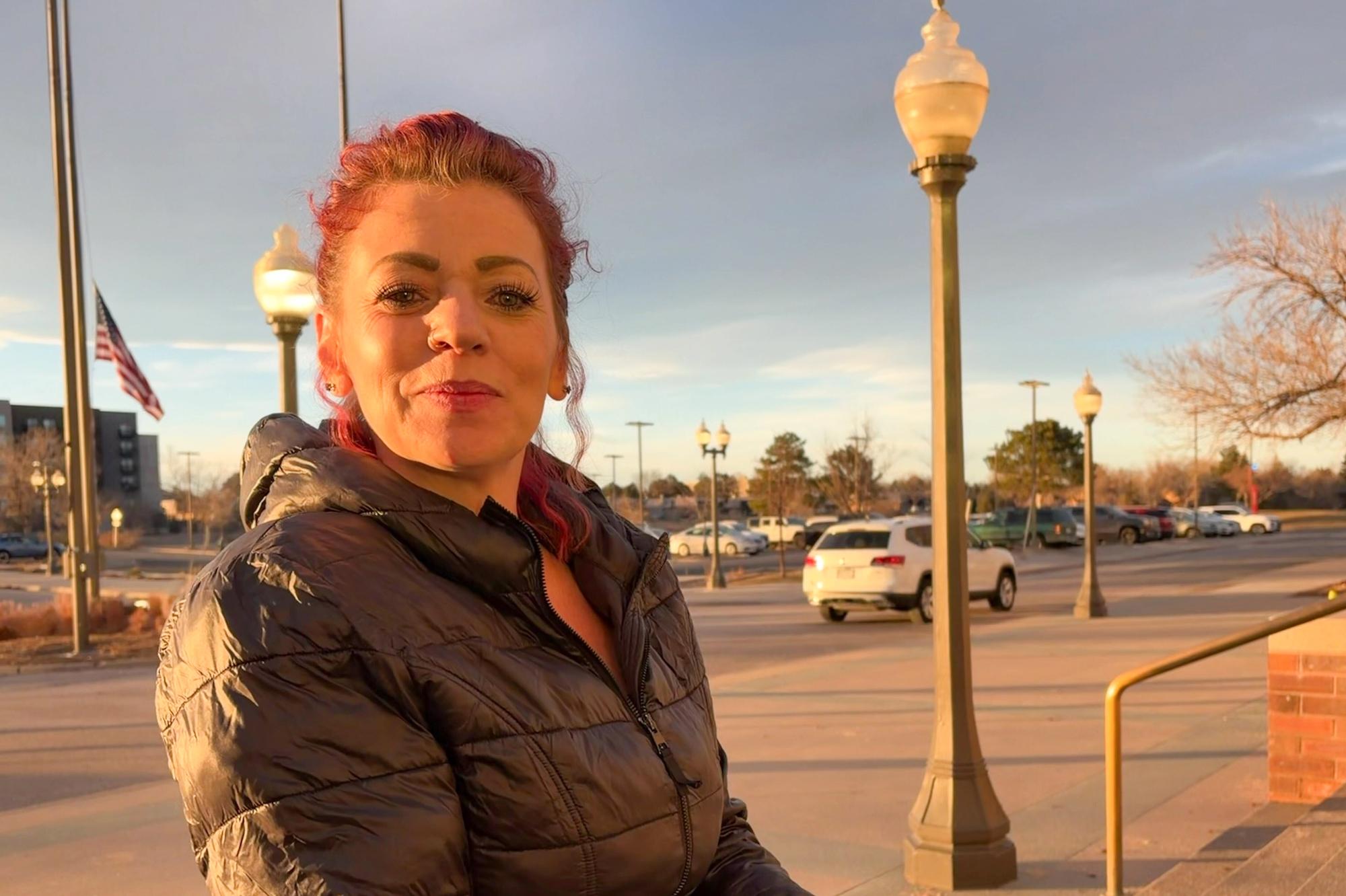
Construction began today on a new $600 million water pipeline near Pueblo. The Arkansas Valley Conduit will eventually bring clean water to dozens of communities that have dealt with naturally occurring contaminants in their drinking water for decades.
Bill Long is the president of the Southeastern Colorado Water Conservancy District, one of the regional partnering agencies working with the federal Bureau of Reclamation on the project.
“We still have a lot of work before us,” he said. “We've accomplished a lot, but we have a lot to do.”
Long said some communities will need to upgrade their infrastructure to tap into the pipeline, but once they do, it could help drive growth in the region.
“Not having a clean water source for any community makes it a huge challenge to encourage economic development,” he said. He noted that in Las Animas there had been proposed projects that needed fresh water, but it was too expensive to provide it. “You're behind the eight ball immediately when you can't provide the basic needs,” he said.
Jim Broderick, SECWCD executive director, agreed. “Everybody deserves good water – big cities, little cities – everybody deserves it,” he said. “That's what's important for the communities in the (Arkansas River) Valley."
The conduit has been more than 60 years in the making. Congress first authorized the original Frying-Pan Arkansas Project in 1962 to bring clean water from the Western Slope east via the Arkansas River. There have been many starts and stops since then.
Long anticipates the first stretch will run about 8 miles east from Pueblo and reach the town of Boone as possibly as early as the end of next year. After that he anticipates additional federal funding will help complete the 230-mile project, which he said optimistically could be complete by 2028.
Plans are to extend the pipeline all the way to Lamar and Eads. It could then provide clean water to some 50,000 people in Bent, Crowley, Kiowa, Otero, Powers and Pueblo counties.










